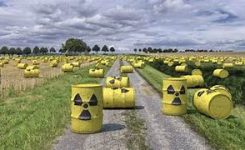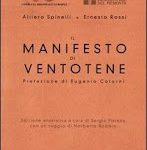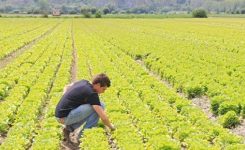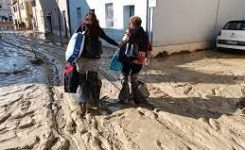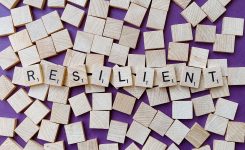E-News, Migrazione, coesione, Agricoltura, Ambiente, SDG, In Evidenza, Ultime Notizie, Notizie
Bonaccini: ripartire da Agenda 2030, crescita sostenibile, dialogo multilivello ed unità
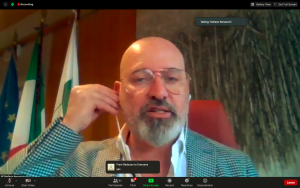
Le priorità dei territori sono cambiate alla luce della pandemia da Covid-19, ma guai a toccare quello che indica l’Agenda 2030 dell’ONU e cioè la sostenibilità. Se, infatti, non investiamo nella crescita sostenibile in tutto il mondo, rischiamo di giocarci il nostro bene più prezioso: il Pianeta Terra.
La pandemia ci ha colti tutti impreparati, nessuno di noi avrebbe immaginato una epidemia globale di queste dimensioni e con questa forza. Questo evento improvviso e drammatico offre spunti di riflessione che mi auguro approfondiremo nei prossimi mesi con il CEMR e l’UCLG. Per esempio, il tema della sanità pubblica.
Mi permetto di fare l’esempio della Regione che presiedo, l’Emilia-Romagna. Siamo stati tra le regioni più colpite dal Covid-19 perché avevamo in pancia il grande focolaio lombardo. Codogno, nel basso lodigiano, è infatti distante da Piacenza solo pochi chilometri. Piacenza molto più vicina a Codogno rispetto ai comuni capoluogo lombardi. Eppure siamo la Regione con il più alto numero di guariti. Il 3 giugno sono stati solo 13 (di cui 12 asintomatici) i casi su un totale di 4milioni e mezzo di abitanti.
La sanità pubblica ha fatto la differenza. Sanità pubblica che, per qualità e quantità, in Italia, in Europa e nel mondo, non è tutta uguale. Penso che il recupero del pubblico stia ritornando, dopo anni nei quali sembrava che il pubblico meno fosse presente meglio era per la qualità della democrazia.
Mi permetto di dire che nei sistemi democratici occidentali, la lotta al covid-19 è stato più efficace nei Paesi senza leader autoritari. L’autoritarismo in alcuni Paesi ha negato l’esistenza della pandemia e non ha condiviso le buone pratiche, come quella italiana.
Bisogna lavorare tutti insieme, coinvolgendo tutti. In Emilia abbiamo creato una cabina di regia per condividere le decisioni non solo con il Governo, ma con i presidenti di Provincia ed i sindaci dei capoluoghi. Insomma, da soli non se ne esce e su questo tema insisteremo come CEMR ed UCLG. La pandemia, ricordiamolo, ha colpito tutti i Paesi del mondo, non facendo distinzioni di razza o economiche.
Le politiche messe in campo dall’Agenda 2030 dell’ONU sono oggi più che mai fondamentali e come AICCRE, CEMR ed UGLC le abbiamo sempre impostate come necessarie, a partire dalla crescita sostenibile. A proposito di elementi che ha messo in evidenza la pandemia, c’è stato un dibattito in Emilia e a livello nazionale intorno ad un tema: uno dei settori che ha sempre lavorato, anche durante la pandemia, è stato quello agricolo ed alimentare, che si è trovato nell’incredibile situazione di non avere più braccia che aiutassero a raccogliere frutta e verdura. A causa del fatto che molti stranieri, a causa della pandemia, erano tornati nei propri Paesi. Questo evento ha fatto emergere con evidenza l’inconsistenza di quei luoghi comuni, che spesso hanno portato consenso, che davano la colpa della disoccupazione al colore della pelle delle persone.
Come CEMR, UCLG ed AICCRE dobbiamo lavorare sempre di più al dialogo multilivello, mettendo insieme enti locali, governi ed istituzioni sovranazionali. Per non commettere gli stessi errori.
The priorities of the territories have changed because of the Covid-19 pandemic, but woe betide the UN Agenda 2030, namely sustainability. If, in fact, we do not invest in sustainable growth around the world, we risk gambling away our most precious asset: Planet Earth.
The pandemic has caught us all unprepared, none of us would have imagined a global epidemic of this size and with this strength. This sudden and dramatic event offers food for thought, which I hope we will explore further in the coming months with the CEMR and the UCLG. For example, the issue of public health.
Let me give the example of the region that I chair, Emilia-Romagna. We were among the regions most affected by Covid-19 because we were close to the great Lombardy outbreak. Codogno, in the lower Lodi area, is in fact only a few kilometres away from Piacenza. Piacenza is much closer to Codogno than the capital cities of Lombardy. And yet we are the Region with the highest number of cured people. On 3 June there were only 13 (of which 12 asymptomatic) cases out of a total of 4 and a half million inhabitants.
Public health has made the difference. Public health that, for quality and quantity, in Italy, Europe and the world, is not all the same. I think that the recovery of the public is coming back, after years in which it seemed that the less public was present the better for the quality of democracy.
Let me say that in Western democratic systems, the fight against covid-19 has been more effective in countries without authoritarian leaders. Authoritarianism in some countries has denied the existence of the pandemic and has not shared good practices, like the Italian one.
We must all work together, involving everyone. In Emilia we have created a control room to share decisions not only with the Government, but with the Presidents of the Province and the mayors of the capitals. In short, we are not going out alone and we will insist on this topic as CEMR and UCLG. The pandemic, let us remember, has affected all the countries of the world, making no distinction of race or economy.
The policies put in place by the UN Agenda 2030 are now more fundamental than ever and as AICCRE, CEMR and UGLC we have always set them as necessary, starting from sustainable growth. Speaking of the elements that highlighted the pandemic, there has been a debate in Emilia and at national level around one issue: one of the sectors that has always worked, even during the pandemic, was agriculture and food, which found itself in the incredible situation of not having any more arms to help pick fruit and vegetables. Because of the fact that many foreigners, because of the pandemic, had returned to their countries. This event highlighted the inconsistency of those clichés, which often brought consensus, that blamed unemployment on the colour of people’s skin.
As CEMR, UCLG and AICCRE we have to work more and more on multi-level dialogue, bringing together local authorities, governments and supranational institutions. So as not to make the same mistakes.

